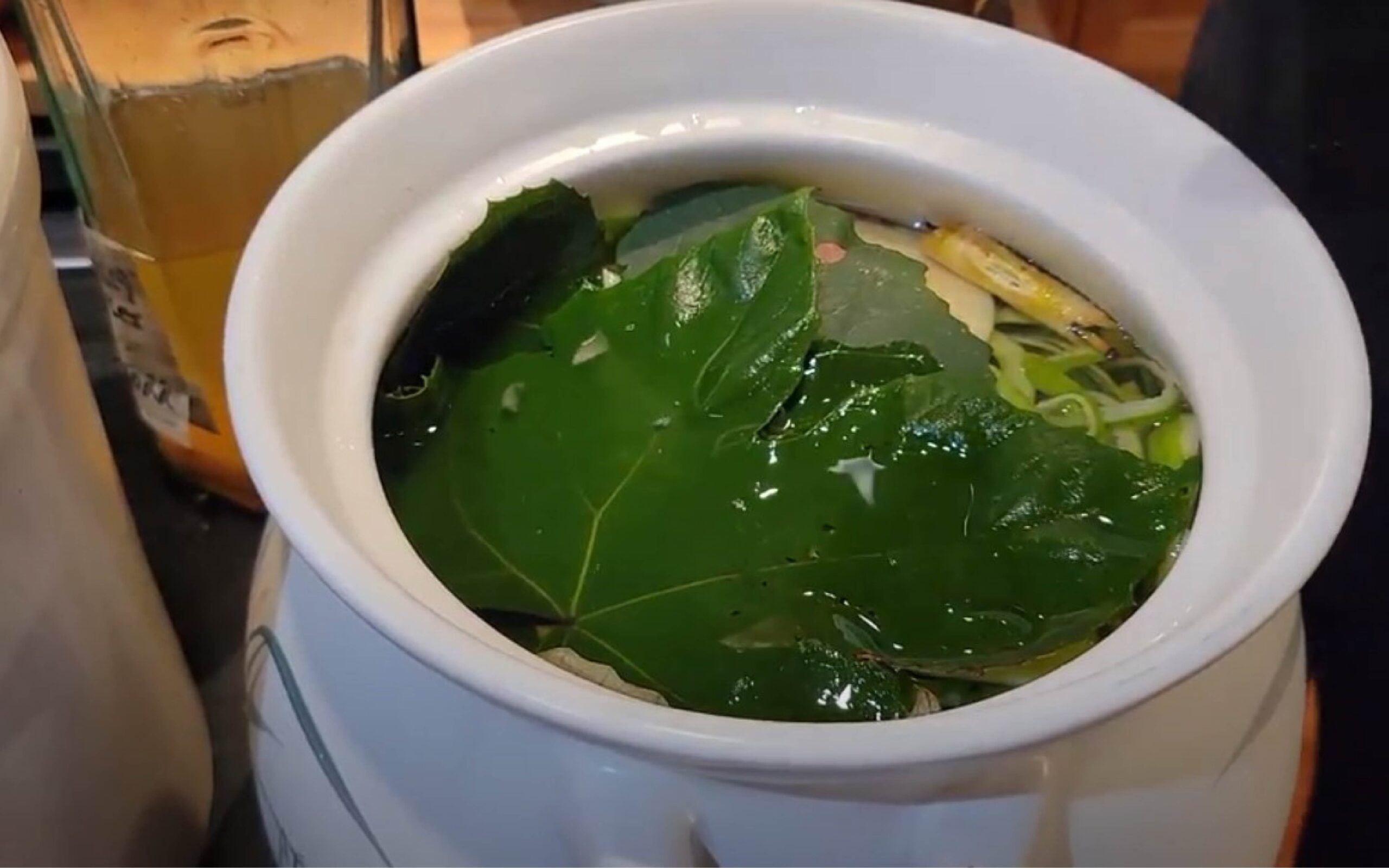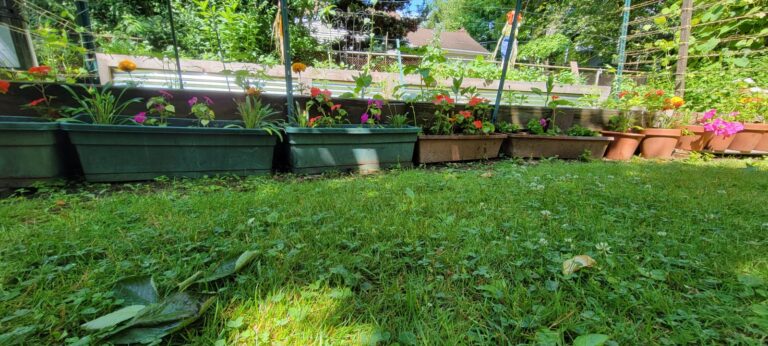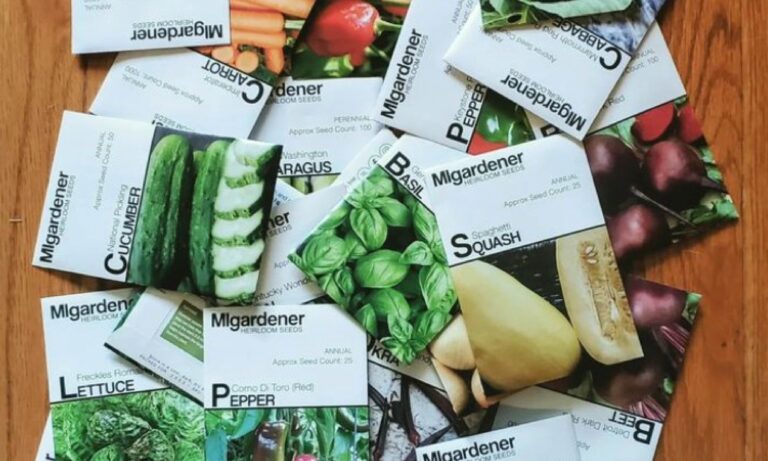Apple Cider Vinegar
As individuals grow more health conscious, the popularity of DIY treatments and natural health products has increased in recent years. Among these, apple cider vinegar (ACV) has emerged as a popular elixir, lauded for its possible health advantages. This ancient tonic, made from apple peels, cores or even crushed, has a long history reaching back to ancient Babylonia. Making your own apple cider vinegar not only provides a delightful DIY endeavor, but it also allows you to connect with the source of this versatile and beneficial drink. This blog will go over my techniques and tricks for making this fantastic take in.
Step by Step
Making your own apple cider vinegar is a simple procedure that requires patience and a few key materials. Here’s the step-by-step procedure:
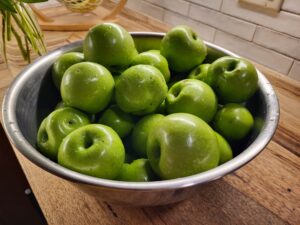
1. Wash the apples with distilled water (avoid using chlorinated water) before peeling and de-coring them. As mentioned above the ACV will be made from the peels and the cores. The flesh part could be used to make apple sauce, apple butter, apple pie filling, dehydrated apple chips etc. The flesh could be cut into chunks or slices depending on how you are about to use them.
2. For best results choose fresh high-quality, organic apples which are not waxed (supermarket apples generally have a layer of wax). I used my own homegrown Granny Smith apples. Note: Granny Smith is on the tart side so I will use extra sugar in the syrup. For sweet varieties, you can use less to no sugar.
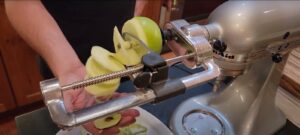
3. Peel and de-core the apples. Place the apple peels and cores in a large, clean jar (avoid any kind of metal and use glass or stoneware). Make a sugary syrup with distilled water. The amount of water depends on the size of the jar that you need to fill and enough sugar to make an extra sweet syrup (as we are using tart apples).
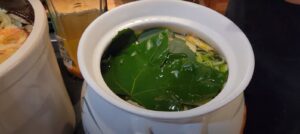
4. Cover the peels and cores with fresh grape leaves or alternatively you can also use fresh cabbage leaves. The reason for the leaves is twofold, first they contain beneficial bacteria to help in the fermentation process and second to help keep the peels and cores below the syrup.
5. Use some weights on the leaves so that all the ingredients remain under the liquid. Fill the jar all the way to the top with the syrup. To help boost the fermentation process I also add a little bit of my old ACV (containing some mother). If this is your first-time making ACV, you can also use store bought ACV which contains the mother.
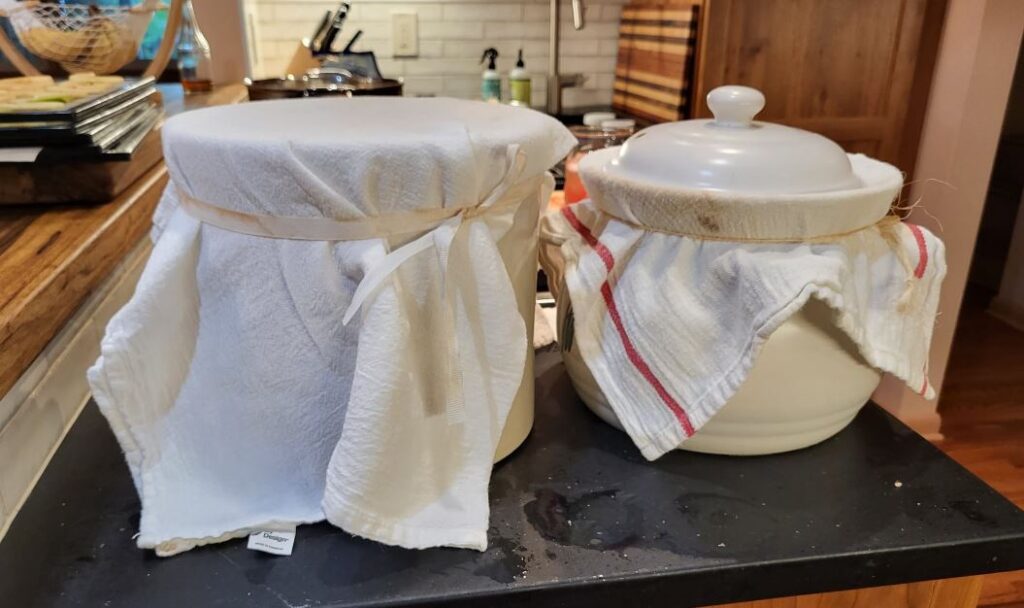
6. Cover the jar with cheesecloth or a paper towel which could be held by a string or a rubber band. This is done to keep the fruit flies away. Cover jar with a lid but make sure that it is not airtight as you do want the whole mixture to be able to breath.
7. For the first few days, check the mixture daily to remove any floaters and to make sure that there is no mold formation. Allow the jar to sit in a warm, dark spot for 3-4 weeks to allow the natural fermentation process to take start.
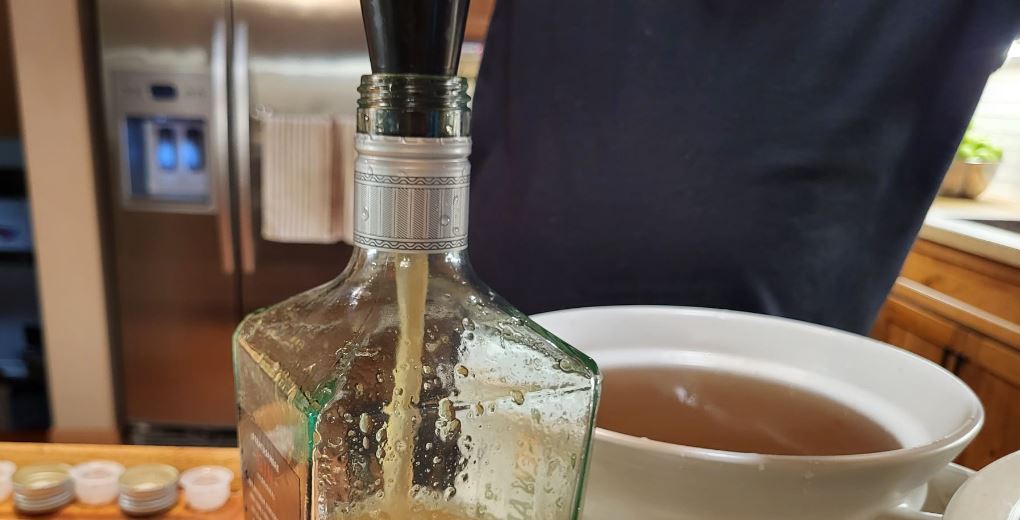
8. When the liquid starts smelling sour and tangy, strain out all the solids and return the liquid to the jar. Cover the jar with cheesecloth and lid again and let it sit for another month or two to ferment.
9. Finally, once the vinegar has attained the proper amount of acidity and flavor, store it in a clean bottle with an airtight top. You can now utilize your homemade apple cider vinegar.
Common Uses of Apple Cider Vinegar
The following are some of the potential household uses and benefits of apple cider vinegar:
Cooking: ACV can be used to flavor foods, especially salad dressings, marinades, and chutneys.
Natural Cleaning agent: Because of its acidic qualities, ACV can be used as an excellent natural cleaning agent around the house. It is useful for cleaning surfaces such as worktops, glass, and floors, as well as removing stains and odors.
Natural Preservative: Apple cider vinegar can be used as a natural preservative for certain foods due to its antibacterial characteristics, limiting the growth of bacteria and increasing their shelf life.
Insect Repellent: Some individuals use apple cider vinegar to repel insects, especially fruit flies and gnats. It can be used in traps or sprayed in regions with these pests.
To improve hair shine and prevent dandruff: Some people use diluted apple cider vinegar as a hair rinse. It is thought to help regulate the scalp’s pH and remove product buildup.
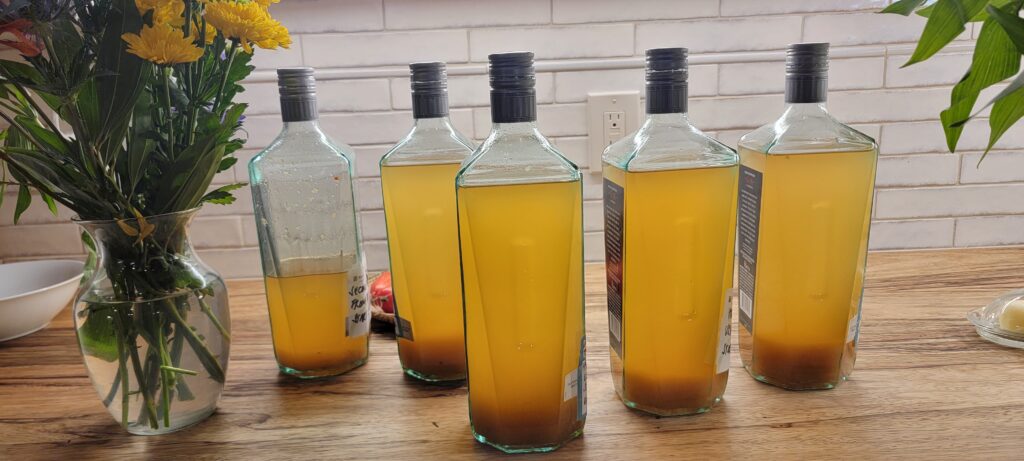
Skin Care: When diluted with water, it can be used as a natural toner to help balance the pH of the skin and potentially minimize acne and blemishes. It can also be used to relieve skin irritations in baths.
Digestive Health: Some people feel that drinking a small amount of apple cider vinegar mixed in water before meals will assist in improving digestion and relieve symptoms like bloating and indigestion. However, before attempting this, it is critical to consult with a healthcare practitioner.
Precautions When Using Apple Cider Vinegar
While apple cider vinegar has various health benefits, it should be used sparingly and with caution. Here are some precautions to take and consult with a healthcare practitioner about its use:
- Dilute before using: Because ACV is highly acidic, it can cause throat irritation and teeth enamel damage. Always dilute it with water before ingesting.
- Keep an eye on your intake: Excessive ACV consumption might cause stomach difficulties and can reduce potassium levels.
- Allergic reactions: Some people are allergic to apples or the fermentation process. If you have any negative reactions, stop using it.
- Medication interactions: ACV can interact with certain medications, particularly those used to treat diabetes and heart disease. If you are taking any medications, talk to your doctor before using ACV.
Conclusion
Homemade apple cider vinegar is a fun and informative experience that can lead to a healthier lifestyle. While not a cure-all, apple cider vinegar’s potential health advantages, when used in moderation and with appropriate safeguards, make it a beneficial addition to your natural health regimen. Enjoy the process of creating this ancient tonic and take advantage of its potential to improve your general health.
Final Note: ACV has been touted as a useful and effective natural remedy for centuries, with claims of its ability to cure or treat numerous ailments and health conditions. In this blog post I tried not to divulge in many of those claims. I do believe that ACV has properties that are good for human body, but I do lack the scientific bases to make any of those claims.
Disclaimer
The content provided on this website is purely for educational purposes. We are neither nutritionists nor do we intend to mislead our readers by providing any medical or scientific information.

